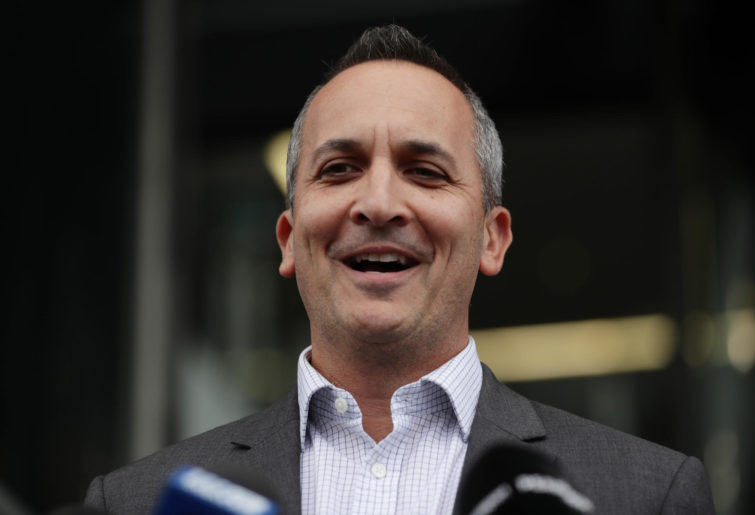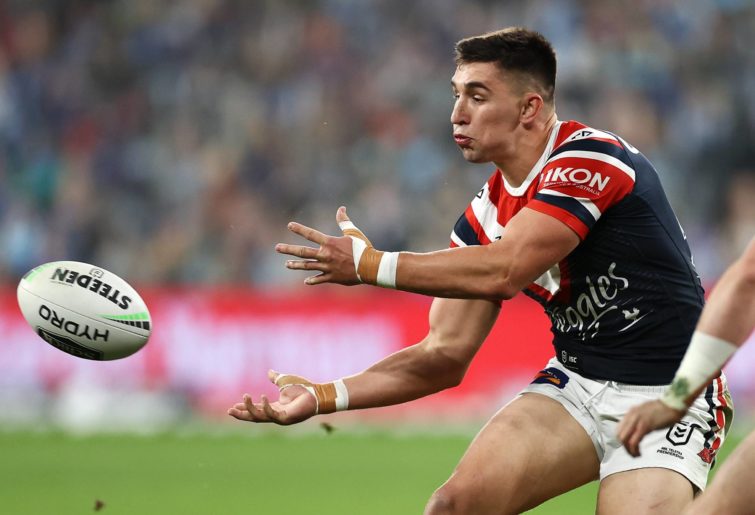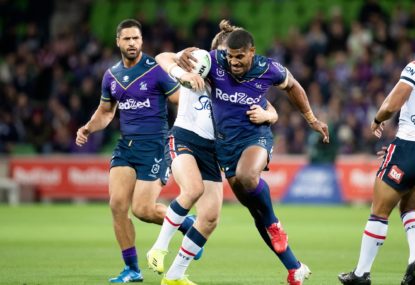I recently pitched the concept of tackling inequalities between NRL clubs through encouraging and incentivising change in the way they make decisions. The premise was that a dollar is not of the same value to every club.
Short of subsidising the stragglers – which wouldn’t be fair and would be met with fierce opposition – the answers must lie in better governance and decision-making, and innovation.
Nudge theory, an offshoot of behavioural science, is a popular topic in some public policy and business circles.
I’m not a big fan. Its early applications were about using the power of cultural and social norms to encourage citizens to fulfil civic duties and expectations.
In recent years, it’s become more interventionist and may have played a small part in the increasing polarisation about choice and the role of government. No matter how sophisticated the nudge, people know when they’re being patronised.
But nudge theory does offer some useful insights. Preaching to the masses doesn’t work. You must connect to individuals and groups. People and organisations don’t necessarily respond to evidence – they’ll find a reason not to – but will respond if they feel they’re being left behind.
It’s something social media’s master manipulators understand instinctively.
With rugby league, we first need to look at who’s making the big strategic decisions.
Who’s on the board?
At the time or writing there were, as far as I could gather, 103 independent directors on the boards of NRL clubs.
There are a handful of other directors, mostly club CEOs. Melbourne has two administrators on its board balanced by two independent directors, which is interesting
Of the 103 independent directors, 28 come from professional backgrounds – law, finance, accountancy and consultancy houses – and 17 are of the old guard, former players and long-time administrators.
41 are from business backgrounds and the remaining 17 include public servants, academics, media figures, an athlete from outside rugby league, a doctor and a musician.
There’s nothing inherently wrong with this mix. Professional expertise is needed to manage risk, corporate knowledge (knowing where the ‘bodies are buried’) is valuable, and business and other fields bring the potential for innovation and entrepreneurialism.
My only concern is with some of the businesspeople. Many have diverse and interesting backgrounds and probably bring a wealth of valuable experience. There are also some curious choices, people who are specialists in very particular fields, for example catering, shopping centre management, construction and human resources.
If you’re going to go for specialists, there are better choices.

Andrew Abdo. (Photo by Mark Metcalfe/Getty Images)
Who should be on the board?
The board does not handle the day-to-day operation of an NRL club. They do set a direction and a framework within which the club operates.
Rugby league may never overcome the factionalism and infighting that has infested many clubs, especially the joint ventures. Clubs should be encouraged, if not required, to have a policy about the composition of their board and the expertise required for appointment.
Clubs could decide their own policy and their factions can choose loyalists. At least they’d be suitably qualified loyalists.
There are a couple of types of specialist expertise clubs should consider.
First, social media. Like it or not, clicks, likes and subscriptions are money.
Clubs shouldn’t be looking at social media as something that can be handled by a media manager and communications staff. They should have a social media strategy to manage the harmful interactions that can occur, and to maximise fan engagement and potential revenue streams.
This NRL should encourage this. State of Origin will attract new viewers, but clubs will turn those viewers into followers.
Second, data analytics. Not the faux ‘insights’ that occasionally find their way into media coverage but proper, hardcore probability analysis.
New money
I have little use for NRL.com. I agree – and this is a first – with the Newscorp reporters who argue it’s largely unnecessary.
The signings tracker is a useful tool and, as the registrar, the NRL should continue to report new contracts.
The NRL should also consider licensing the digital content it creates to clubs who appoint social media specialists and develop social media strategies and business plans for monetising content.
Some clubs already do it well. Kudos to whomever runs Souths’ YouTube channel. Others have some catching up to do.
https://www.youtube.com/user/RabbitohsTV]
There are social media creators who make a very good living from their content. NRL clubs could too.
What to do with the additional revenue clubs might generate? The NRL as licensor gets a cut. The rest could go into a discretionary fund. It could be used in much the same way as third-party payments. Players sign up as content contributors and get their own cut. It could avoid embarrassing videos appearing on other channels.
Hardcore probability and recruitment
While there might be potential for clubs to generate some additional financial space outside the salary cap, the money still needs to be spent well.
When I mentioned ‘hardcore probability’ earlier, I had an industry in mind: gambling. They might as well make a useful contribution somewhere.
Are there better or more motivated probability analysts than those who run the numbers for bookmakers? Probably, but the gamblers are the most available. It’s been demonstrated that their skills can work in helping struggling clubs recruit better.
In 2009, Brentford FC was in the fourth tier of English football and sliding toward insolvency. In 2012, the club was acquired by a former investment banker come gambling mogul, Matthew Bentham.
Earlier this year, Brentford was promoted to the Premier League. Direct investment in the club has certainly helped, but the Brentford story is as much about a recruitment approach based on analysing what players might do in the right environment, not just what they’ve done elsewhere.

The Roosters and the Storm show the value of having the head office in order. (Photo by Cameron Spencer/Getty Images)
A new role for the NRL
The Federal Government is at its best when it’s encouraging innovation, rather than micro-managing. In other words, focused on the big picture.
The financial and human resources currently dedicated to NRL.com could be put to a more useful purpose: research, reporting and evaluation.
The statistics published on NRL.com are not currently as comprehensive as those on Fox Sports or Zero Tackle and do not enable longitudinal analysis. That’s not good enough. The NRL should be the Baseball Reference of rugby league. Who else is going to do it?
The NRL should be researching best practice in governance and efficiency – the Brentfords, Bayern Munichs and Tampa Bay Rays of the world. What works and why? It would certainly be more valuable than ‘news’ about who’s in the best shape of their careers in pre-season training.
The NRL should also become the Productivity Commission of rugby league. There’d be some acrimony – nothing new in rugby league – but benchmarking the off-field performance of clubs could be a useful nudge. What clubs are run well and why. Who’s being left behind?
Transparency
I came across some weirdness researching this piece.
Why does one have to ask Souths for a copy of their annual report? They sent me a copy almost immediately, so why do they not just publish. Oh, right, I’m now on Souths’ mailing list
Logic dictates that Win Corporation, part owner of St George Illawarra, must have four directors on the club’s board. I could identify only one.
I’m no longer sure the Canberra Raiders exist. I vaguely recall some large people in green shirts. I may have ventured too far into the abyss.
The point is, clubs like Canberra, Wests, St George Illawarra and Manly are the protuberances of multiple entities into the NRL. The documents required to assess their performance are diffuse and difficult to assess.
Every club operates under the aegis of the NRL. Why are their annual reports and financial statements not published centrally? It cannot be beyond the Raiders or Dragons to publish consolidated financial statements.
I’ve tried to put myself in the mindset of being both a mad Dragons supporter and a wealthy investor (only one of those things is true) and I don’t have enough information. Help me out, Dragons. I can’t believe I’m saying this but be more like Cronulla.































































































